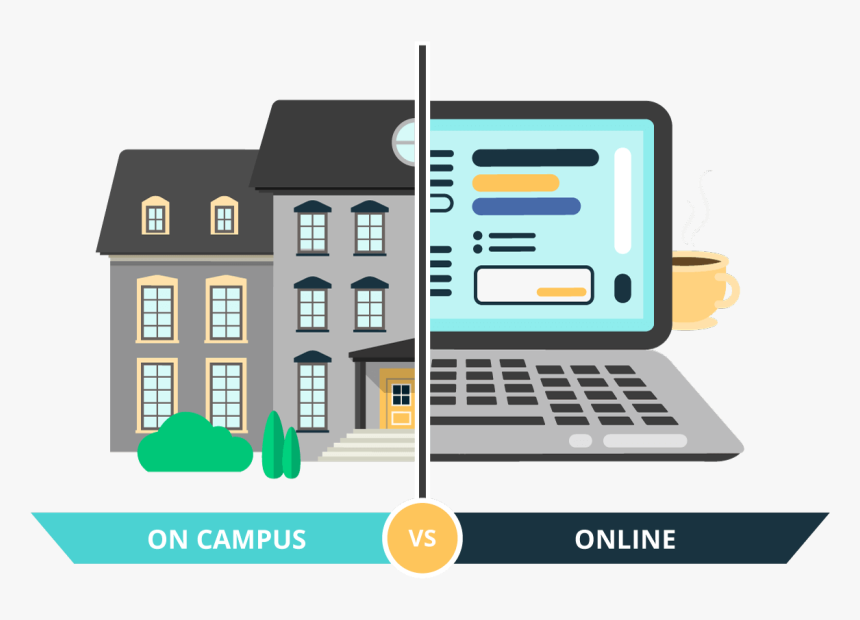How to decide between campus-based and online education

One of the first choices you make when looking at your study options is whether you want to study abroad. Thankfully, there are two ways for students seeking an Australian credential to do so: either on an Australian campus or online through an Australian education provider.
Girl uses laptop while reading books at desk. Each student has unique circumstances and distinct goals for their future education. We’ve put together a breakdown of the benefits of each choice to help you choose between on-campus and online education.
On-campus study
- New experiences
Although it may be daunting at first, studying overseas opens you up to a whole range of new life experiences. You may find yourself living out of home for the first time, learning new language skills (or picking up some Aussie slang), trying new foods or perhaps taking up a new hobby (such as surfing). You also have the opportunity to experience Australian teaching and learning, which may be different to what you are used to at home. - Travel opportunities
Australia is a beautiful place, and studying on campus will allow you to experience it! As semesters are relatively short in Australia (usually around 12 to 14 weeks), you have plenty of time to explore the country during semester breaks or over the weekend. You also have the opportunity to see new things (including some of the most unique natural landscapes in the word) and experience a different culture. Look out for special tours in outback areas throughout Central Australia and the Northern Territory for a range of new cultural experiences. - New friends and increased social opportunities
Social opportunities make studying on campus an attractive choice for many students. Students who study on campus find themselves taking part in countless social activities: faculty balls, graduate exhibitions and fashion shows, clubs and societies, markets, barbeques, sports matches… and the list goes on. This also gives you the opportunity to make new friends from Australia and around the world. - Work experience
As an on-campus student, you have the opportunity to seek out work experience with Australian employers.This includes finding a casual or part-time job to earn some extra cash, undertaking an internship or industry placement, or, better yet, gaining a paid position relevant to your course of study. Many Australian institutions have a career service that can help you look for work during and after your studies.
Online and distance education
- You can study almost anything
Due to advances in technology, education providers are now offering more and more courses online and by distance. While your study options may exclude some fields (medicine, for example, which requires a significant amount of practical learning), you can complete an online or distance education course in most fields and at both Vocational Education and Training (VET) and higher education (undergraduate and postgraduate) levels. - Life balance
Online study is a great option for students who need to balance study with other commitments, such as full-time work or raising children. This means that you can stay in your home country while completing an Australian qualification if you are unable to study abroad or if you would simply prefer to study from your own home. - Access to support services
As an online or distance education student, you still have access to the same support services offered to on-campus students. Institutions have specially designed systems in place to ensure that online students do not miss out if they require additional support. You may find that institutions offer ‘face-to-face’ meetings with advisers (on Skype or similar software) or additional online resources such as chatrooms that you can use to contact your lecturers and tutors if you are having trouble with your coursework. - You can ‘sample’ a qualification
Another huge advantage of online study is that you can sample a single subject, or a lower-level qualification, rather than committing to moving abroad for a full degree. This is a good option for students who are either unsure about the exact course they want to do (and want to ‘try out’ a field of study) or for those who aren’t ready to commit three or four years to a degree program and would prefer to study at their own pace. Students who complete single subjects or lower-level qualifications can apply for course credits (usually called ‘advanced standing’ or ‘recognition of prior learning’) if they decide to progress to a course in a related field.
Recommended Posts

How to get to work and study in Australia?
September 22, 2022

